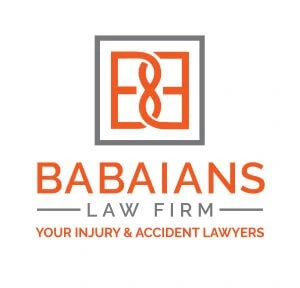
After a loved one’s unexpected death, you’ll need to take immediate action by notifying relevant parties, securing their property, and obtaining multiple death certificates. During this difficult time, experienced Wrongful Death Lawyers can guide you through the initial steps to protect your rights and your loved one’s legacy.
However, this is just the beginning. As you start to build a case, you’ll want to ascertain you’re making informed decisions about your next steps. Understanding your rights and options can be overwhelming, but a Glendale wrongful death lawyers can help. We’re available 24/7 to speak with you about your claim.
Dealing With Immediate Aftermath
In the traumatic aftermath of a loved one’s wrongful death, your emotional and mental well-being are put to the test, making it essential to take immediate action to protect yourself and your interests.
Notify Relevant Parties
You’ll need to notify relevant parties, including your loved one’s employer, bank, and creditors, as well as the Social Security Administration and the Department of Veterans Affairs, if applicable.
Secure Assets
It’s also imperative to secure your loved one’s property and assets, including real estate, vehicles, and personal belongings. This may involve changing locks, taking control of joint bank accounts, and halting credit card activity.
You should also obtain multiple copies of the death certificate, as you’ll need these to settle your loved one’s estate.
Consult With Babaians Law Firm
Additionally, you may want to consider consulting with a Glendale personal injury lawyer from our firm to discuss your options and determine the best course of action. We can help you navigate the complex process of filing a claim and ensure you receive the compensation you’re entitled to.
For a free legal consultation, call (818) 334-2981
Grieving and Self-Care
Losing a loved one to a wrongful death can be a devastating experience, and you must prioritize your emotional and mental well-being during this challenging time.
Grieving is a natural process, and allowing yourself to experience your emotions can help you heal. However, it’s equally important to take care of your physical health to maintain your overall well-being.
To ensure you’re taking care of yourself, consider the following:
- Allow for rest: Get enough sleep and engage in relaxing activities such as meditation, yoga, or deep breathing exercises to help manage stress and anxiety.
- Maintain a healthy diet: Focus on consuming nutritious foods and avoid relying on unhealthy coping mechanisms such as excessive drinking or substance abuse.
- Seek support from loved ones: Reach out to family and friends for emotional support, and consider joining a support group to connect with others who’ve experienced a similar loss.
Gathering Essential Information
When a loved one’s death is caused by someone else’s negligence or wrongdoing, gathering essential information is crucial to understanding the circumstances surrounding their passing and pursuing a potential wrongful death claim.
Documentation
It would help if you started by collecting and preserving any relevant documents, such as medical records, police reports, and witness statements. These documents can help establish the cause of death and the roles of any parties involved.
Gather any relevant personal documents of the deceased, including pay stubs, tax returns, and other financial records, as these can help determine the financial impact of their death on their loved ones.
Consult Witnesses
Identify and interview any witnesses who may have information about the incident. This can include people who were present at the scene and people who may have information about the circumstances leading up to the incident.
Physical Evidence
It would help if you also noted any physical evidence, such as photographs or videos, that may be relevant to the case. Gathering this information can help build a strong foundation for a potential wrongful death claim.
Click to contact our personal injury lawyers today
Filing a Wrongful Death Claim
Filing a wrongful death claim is often the most critical step in seeking justice and compensation for a loved one’s untimely passing. To initiate the process, you’ll need to identify the personal representative of the deceased’s estate, typically a family member or designated executor. This individual will be responsible for filing the claim on behalf of the estate.
Gather and Organize Documentation
You’ll need to gather evidence supporting the claim, including documentation of the deceased’s medical treatment, employment, and financial records. You should also collect any relevant witness statements, photographs, or videos related to the incident.
Consult with an attorney experienced in wrongful death cases to ensure the claim is filed within the statute of limitations, which varies by state. Your attorney will help you determine the types of damages to pursue, such as medical expenses, lost wages, and emotional distress.
Who Can Be Filed Against?
A wrongful death claim can be filed against individuals, organizations, or entities, such as employers, manufacturers, or government agencies. Your attorney will guide you through the process and help you navigate the complexities of the claim.
You have the right to seek compensation for your loved one’s death; filing a wrongful death claim is a critical step in exercising this right.
Complete a Free Case Evaluation form now
Seeking Support for Family
You’ll likely need to establish emotional support systems to help you cope with the loss of your loved one. Counseling can be an effective way to support family members, particularly children, who may be struggling to process their emotions.
Emotional Support Systems
Grief often accompanies the traumatic experience of a loved one’s wrongful death, affecting family members in profound ways. You may struggle to navigate this emotional landscape, but it’s crucial to establish a support system to help you cope.
Building a strong network of loved ones, friends, and community can make a significant difference in your healing journey. Establishing an emotional support system can take various forms. You may find it helpful to:
- Reach out to immediate family members: Talk to your spouse, children, or siblings about your feelings and emotions. Sharing your experiences can help you process your grief and strengthen your relationships.
- Connect with friends and acquaintances: Friends can provide a different perspective on your situation and offer emotional support. Don’t be afraid to reach out to them for help.
- Join a support group: Many organizations offer support groups for people who’ve experienced a loved one’s wrongful death. Sharing your story with others who’ve gone through similar experiences can be incredibly helpful.
Visit our FAQ page for more information.
Contact Our Glendale Wrongful Death Lawyers for Help
Now you know what to do after a loved one’s wrongful death lawyers. Remember to stay focused on gathering crucial information and choosing the right attorney to guide you through the claims process.
Prioritize your well-being, seek support, and consider counseling to cope with grief. As you move forward, it’s important to stay informed and proactive in building a strong case to pursue justice and compensation for your loss. Contact Babaians Law Firm today to get a free consultation.
